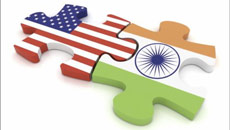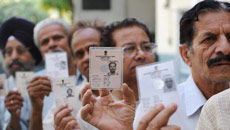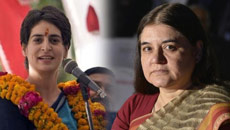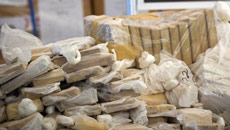India had established the Space Commission and the Indian Space Research Organisation "very early", and the country was a "pioneer in space programmes in Asia" much ahead of China, the prime minister's special envoy for disarmament and non-proliferation, Rakesh Sood, said here Wednesday.
Sood was speaking at the release of a new publication - "Awaiting Launch: Perspectives on the Draft International Code of Conduct (ICOC) for Outer Space Activities" - at the Observer Research Foundation.
"We are trying for sustainability and safety of outer space and not banning use of it."
On the book, Sood said he hoped it would help give new ideas to policy makers and negotiators as it was well timed before the next round of open ended consultations later this month.
H.H.S. Viswanathan, a former Indian ambassador, said there have been many discourses on code of conduct in space, but very little progress.
"This makes this book important as there is very little literature on this crucial area closely related to our lives in many ways," he said.
The European Union has been working on its ICOC since 2012 and the code has been gaining traction recently.
The EU has also instituted open ended consultations which were held in Kiev and Bangkok last year.
A third session is scheduled in May.
The book, edited by Rajeswari Pillai Rajagopalan and Daniel A. Porras, says while the debates and process on the code of conduct are important, they need to focus on the content and address some of the substantive issues.





